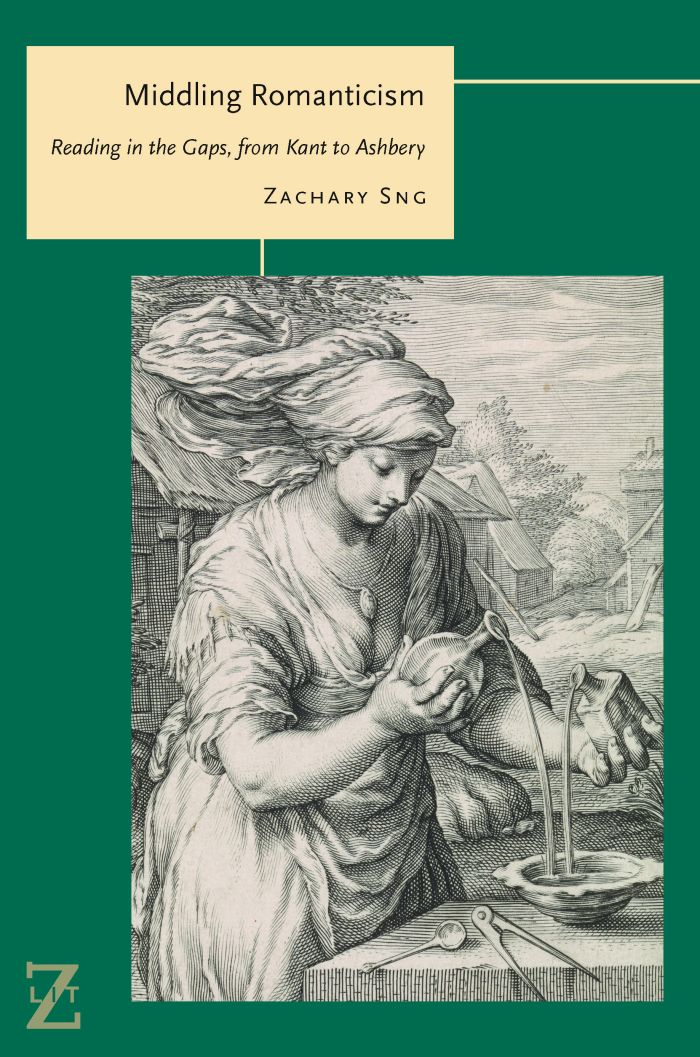Middling Romanticism
Reading in the Gaps, from Kant to Ashbery

This book can be opened with

“This engaging book offers a series of creative interventions into the debates about language and conceptuality that have preoccupied scholars of romanticism since the late 1970s. With his detailed accounts of complex lexical, grammatical, and rhetorical dynamics, Sng has set an enviably high standard of analysis.”—Jan Mieszkowski, Reed College
Romanticism is often understood as an age of extremes, yet it also marks the birth of the modern medium in all senses of the word. Engaging with key texts of the romantic period, the book outlines a wide-reaching project to re-imagine the middle as a constitutive principle. Sng argues that Romanticism dislodges such terms as medium, moderation, and mediation from serving as mere self-evident tools that conduct from one pole to another. Instead, they offer a dwelling in and with the middle: an attention to intervals, interstices, and gaps that make these terms central to modern understandings of relation.
Zachary Sng is Associate Professor of Comparative Literature and German Studies at Brown University. He is the author of The Rhetoric of Error from Locke to Kleist (Stanford, 2010).
This engaging book offers a series of creative interventions into the debates about language and conceptuality that have preoccupied scholars of romanticism since the late 1970s. With his detailed accounts of complex lexical, grammatical, and rhetorical dynamics, Sng has set an enviably high standard of analysis.—Jan Mieszkowski, Reed College
Middling Romanticism makes an arresting case for thinking about being in the middle as the site really, multiple sites—that morph as you read them, where romantic writing does its work within, beyond, and across historical and philosophical moments.—Monatshefte
Introduction | 1
1. Parenthyrsos: On the Medium of the Sublime | 17
2. The Medium Eats the Message: Mediatization
and Force in Kleist’s “Michael Kohlhaas” | 38
3. Radically Neutral: Hegel, Haiti, Kleist | 71
4. Love Language: Plato, Shelley, Schlegel | 104
5. This Is (Not) a Joint: Two Readings of Friedrich Hölderlin | 127
6. Lyric Meditude: On Hölderlin and Ashbery | 154
After Words | 173
Acknowledgments | 187
Notes | 189
Works Cited | 217
Index | 233





